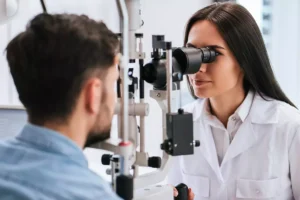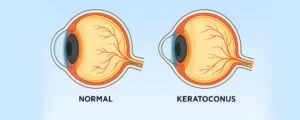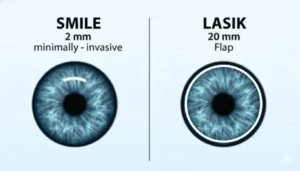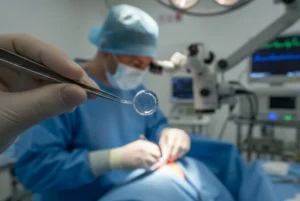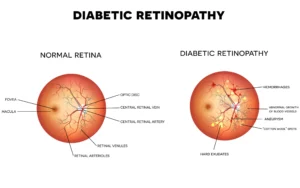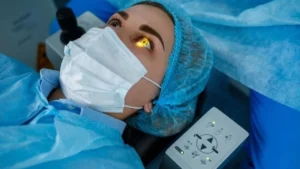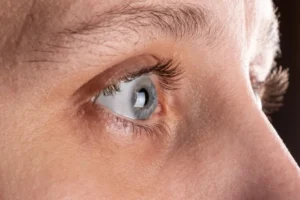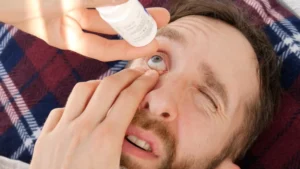Cataracts represent a significant global health challenge, impacting millions with progressive vision impairment. Characterized by the clouding of the eye’s natural lens, cataracts lead to blurred vision, glare sensitivity, and diminished colour perception, profoundly affecting daily life. For individuals in the United Kingdom facing lengthy waiting lists or prohibitive costs for crucial ocular interventions, the prospect of seeking high-quality, efficient, and affordable treatment abroad has become increasingly appealing. Turkey has emerged as a preeminent destination for such specialized medical care, particularly for advanced cataract surgery, offering a compelling blend of clinical excellence, cutting-edge technology, and patient-centric services.
This comprehensive guide explores the multifaceted advantages of undergoing cataract surgery in Turkey, providing an authoritative comparison with options available in the UK. We delve into the intricacies of modern surgical techniques, the credentials of Turkish ophthalmic surgeons, the state-of-the-art facilities, and the overall patient journey, aiming to equip prospective patients with the knowledge necessary to make informed decisions about their vision restoration.
Understanding Cataracts and Their Impact
A cataract is a common age-related condition, though it can also result from injury, certain medications, or underlying health conditions. The lens inside the eye, normally clear, becomes cloudy, impeding light transmission to the retina. Initially, symptoms may be subtle, but as the cataract progresses, vision becomes increasingly impaired. Common indicators include:
- Blurred or hazy vision
- Increased sensitivity to light and glare
- Difficulty seeing at night
- Fading or yellowing of colours
- Seeing ‘halos’ around lights
- Frequent changes in eyeglass or contact lens prescriptions
If left untreated, cataracts can lead to severe vision loss and even blindness. Surgical intervention is the only effective treatment, involving the removal of the clouded natural lens and its replacement with an artificial intraocular lens (IOL).
Advanced Cataract Surgical Techniques in Turkey
Turkey’s ophthalmic clinics are renowned for employing the latest advancements in cataract surgery, ensuring precision, safety, and optimal visual outcomes. The primary surgical method is phacoemulsification, often supplemented by laser technology and a wide array of intraocular lens options.
Phacoemulsification: The Gold Standard
Phacoemulsification, or ‘phaco,’ is the most commonly performed cataract surgery worldwide. It involves making a tiny incision, typically 2-3mm, in the cornea. A small ultrasonic probe is then inserted, which emits ultrasound waves to break up the cloudy lens into tiny fragments. These fragments are then suctioned out. Finally, a foldable artificial IOL is inserted through the same incision and unfolds into position. This minimally invasive technique offers rapid recovery and excellent results.
Femtosecond Laser-Assisted Cataract Surgery (FLACS)
For enhanced precision and predictability, many Turkish clinics offer Femtosecond Laser-Assisted Cataract Surgery (FLACS). This advanced technique utilizes a femtosecond laser to perform several crucial steps traditionally done manually with blades, such as the corneal incisions, the capsulotomy (opening the front of the lens capsule), and even softening the cataract. The laser’s unparalleled accuracy minimizes human error and can be particularly beneficial for complex cases or when specific IOLs are chosen.
Intraocular Lens (IOL) Options
The choice of IOL is critical for achieving desired visual outcomes. Turkish clinics provide a comprehensive range of IOLs, including:
- Monofocal IOLs: Provide clear vision at one distance, typically far. Patients may still require glasses for reading or intermediate vision.
- Multifocal IOLs: Designed to provide clear vision at multiple distances (near, intermediate, and far), reducing dependence on glasses.
- Toric IOLs: Correct astigmatism in addition to cataract, further enhancing vision clarity.
- Extended Depth of Focus (EDOF) IOLs: Offer a continuous range of vision, from intermediate to far, with fewer visual disturbances than some multifocal options.
The selection of the appropriate IOL is made in consultation with the surgeon, considering the patient’s lifestyle, visual needs, and specific eye health.
Why Choose Turkey for Cataract Surgery?
Turkey has solidified its reputation as a global hub for medical tourism, particularly for sophisticated procedures like cataract surgery. Several compelling factors contribute to this appeal for international patients, especially those from the UK.
Cost-Effectiveness Without Compromising Quality
One of the most significant advantages of seeking cataract surgery in Turkey is the substantial cost saving compared to the United Kingdom, often without any compromise on the quality of care or technology. This is largely due to lower operational costs, favourable exchange rates, and a competitive healthcare market. Patients can access premium IOLs and advanced laser-assisted procedures at a fraction of the price they would pay domestically. For a detailed breakdown of potential savings, it is advisable to explore resources like Vision Restoration Costs: Cataract Surgery Explained.
| Service/Item | Turkey Price (GBP) | UK Price (GBP) |
|---|---|---|
| Standard Cataract Surgery (Monofocal IOL) | £2,000 | £4,000 – £6,000 |
| Premium Cataract Surgery (Multifocal/Toric IOL) | £2,800 – £4,000 | £6,000 – £10,000 |
| Bilateral Cataract Surgery (Standard) | £3,800 | £8,000 – £12,000 |
| Femtosecond Laser-Assisted Cataract Surgery (per eye) | £3,000 – £4,500 | £7,000 – £12,000 |
Prices are estimates and can vary based on clinic, surgeon, and specific IOLs chosen.
Access to Experienced Surgeons and Advanced Technology
Turkish eye surgeons are highly trained, many with international experience and affiliations. They work in modern, accredited hospitals and clinics equipped with the latest diagnostic and surgical technology, rivalling or exceeding standards found in Western Europe. The high volume of procedures performed by these specialists contributes to their extensive expertise and refined surgical skills.
Reduced Waiting Times
Patients in the UK often face considerable waiting lists for elective surgeries, including cataract removal, through the NHS. In contrast, Turkish clinics offer immediate access to consultations and surgery, allowing patients to plan their treatment efficiently and avoid prolonged periods of impaired vision.
Integrated Medical Tourism Experience
Beyond the surgical procedure, Turkey offers a holistic medical tourism experience. Many clinics provide comprehensive packages that include accommodation, airport transfers, and interpreter services, simplifying the logistics for international patients. Furthermore, the opportunity to combine medical treatment with a restorative holiday in beautiful cities like Antalya is an added benefit. Information on optimal travel seasons can be found at Antalya Climate: Optimal Seasons for Medical Travel.
Comparing Turkey and the United Kingdom
For patients considering cataract surgery, a direct comparison between services in Turkey and the United Kingdom highlights key differences.
| Factor | Turkey | United Kingdom |
|---|---|---|
| Cost of Procedure | Significantly lower (50-70% less) | High, especially for private care |
| Waiting Times | Minimal to none | Can be substantial (NHS) or moderate (private) |
| Technology & Expertise | State-of-art facilities, internationally trained surgeons | High standards, but access to latest tech/premium IOLs may vary by funding |
| Patient Experience | Often comprehensive packages (travel, accommodation, interpreter) | Generally focused on medical aspect, less travel support |
| Travel & Accommodation | Requires international travel, potential for holiday | Domestic travel, generally easier logistics |
Clinical Outcomes and Safety
Extensive clinical research consistently demonstrates that modern cataract surgery, particularly phacoemulsification with intraocular lens implantation, is a highly effective and safe procedure. A systematic review by Line et al. (2020) published in Clinical Ophthalmology, for instance, highlights that these procedures consistently yield excellent visual outcomes and high levels of patient satisfaction across diverse populations. The review underscores the significant improvement in quality of life reported by patients post-surgery. Turkish clinics adhere to stringent international safety protocols and boast high success rates, aligning with global standards for ophthalmic care. Patients can expect comparable or even superior outcomes due to access to advanced technology and highly specialized surgeons.
The Patient Journey: What to Expect
Embarking on cataract surgery in Turkey involves a structured and supportive process designed for international patients.
1. Initial Consultation and Assessment
The journey begins with a remote consultation, often via video call, where the patient’s medical history, current vision issues, and expectations are discussed. Comprehensive diagnostic tests are then performed upon arrival in Turkey to accurately assess the eye’s condition, determine the degree of cataract, and measure the eye for precise IOL selection.
2. Pre-Operative Preparation
Before surgery, patients receive detailed instructions on medication, fasting, and what to bring. Anesthetic options (usually local anaesthesia with sedation) are discussed to ensure comfort throughout the procedure.
3. The Surgical Procedure
Cataract surgery is typically an outpatient procedure, meaning no overnight hospital stay is required. The surgery itself is quick, usually lasting between 15-30 minutes per eye. If both eyes require surgery, they are often treated a few days apart to allow for initial recovery of the first eye.
4. Post-Operative Care and Follow-up
Immediately after surgery, patients will have a protective shield over their eye. The surgeon provides detailed post-operative instructions, including eye drop schedules and activity restrictions. A follow-up examination typically occurs the day after surgery to assess initial healing and vision.
Recovery and Aftercare
Proper recovery and adherence to aftercare instructions are paramount for optimal visual outcomes.
Week 1 Post-Surgery
- Vision: Vision will begin to improve rapidly, though some blurriness, grittiness, or mild discomfort is normal.
- Eye Drops: Meticulously follow the prescribed schedule for antibiotic and anti-inflammatory eye drops to prevent infection and manage inflammation.
- Activity Restrictions: Avoid strenuous activities, heavy lifting, bending over, and rubbing the eye. Protect the eye from water, dust, and direct sunlight.
- Sleeping: Wear a protective eye shield at night to prevent accidental rubbing.
Month 1 Post-Surgery
- Vision Stabilization: Vision will continue to stabilize. Any residual blurriness typically resolves.
- Gradual Return to Activities: Most normal activities can be resumed, but contact sports or activities with a high risk of eye injury should still be avoided.
- Final Eye Exam: A final follow-up exam is usually conducted to confirm complete healing and determine any need for prescription glasses for fine-tuning vision.
Patients should also remember that other eye treatments, such as Laser Eye Surgery Prices in Turkey, might have different recovery timelines and considerations.
CK Health Turkey: Your Partner in Vision Restoration
At CK Health Turkey, we understand the profound impact that clear vision has on quality of life. As a leading facilitator for international patients seeking medical excellence in Turkey, we specialize in connecting individuals with top-tier ophthalmic clinics and highly experienced surgeons. Our commitment is to provide a seamless and supportive journey for those seeking cataract surgery in Turkey, ensuring access to advanced techniques, premium intraocular lenses, and comprehensive care at competitive prices.
We pride ourselves on offering personalized service, from initial consultation and travel arrangements to post-operative follow-up. Our network of accredited hospitals utilizes the latest technology, ensuring precise diagnoses and superior surgical outcomes. Beyond eye treatments, CK Health Turkey is also recognized for its expertise in other specialties, including bariatric surgery for weight loss and a full spectrum of plastic surgery procedures.
If you are considering cataract surgery and wish to explore the unparalleled advantages of treatment in Turkey, we invite you to take the first step towards clearer vision. Get in touch with CK Health Turkey today for a no-obligation consultation, or visit our website to learn more about how we can facilitate your medical journey.
Regaining clear vision through cataract surgery is a transformative experience, offering enhanced independence and an improved quality of life. For patients in the United Kingdom, Turkey presents an exceptionally viable and advantageous option for this crucial procedure. The combination of world-class medical facilities, highly skilled surgeons, advanced technology, significant cost savings, and streamlined patient services makes Turkey an undisputed leader in ophthalmic medical tourism. By carefully considering all factors and partnering with a reputable medical tourism facilitator like CK Health Turkey, patients can confidently embark on their journey towards restored sight, knowing they are in expert hands.
FAQs
Is cataract surgery in Turkey safe?
Yes, cataract surgery in Turkey is highly safe. Turkish clinics adhere to stringent international standards, employ highly qualified surgeons, and utilize advanced technology, ensuring patient safety and excellent outcomes comparable to leading global medical centres.
What is the success rate of cataract surgery?
Modern cataract surgery has a very high success rate, typically over 95%, in improving vision. Factors like the patient’s overall eye health and the specific type of IOL chosen can influence individual results.
How long do I need to stay in Turkey for cataract surgery?
Patients typically need to stay in Turkey for approximately 5-7 days. This allows for pre-operative consultations, the surgery itself, and at least one crucial post-operative check-up before travelling back.
Will I need glasses after cataract surgery?
Whether you need glasses after surgery depends on the type of intraocular lens (IOL) chosen. Monofocal IOLs usually require glasses for reading. Multifocal, Toric, or EDOF IOLs are designed to reduce or eliminate the need for glasses for most activities.
What is the recovery time like?
Initial vision improvement is often noticed within days. Full visual recovery and stabilization typically occur within 4-6 weeks. Patients should follow post-operative instructions carefully, especially regarding eye drops and activity restrictions.
Are Turkish ophthalmologists highly qualified?
Yes, Turkish ophthalmologists undergo extensive training and many have international experience and affiliations. They are skilled in advanced surgical techniques and regularly perform a high volume of procedures.
Can I have both eyes treated at once?
While it is technically possible, surgeons generally recommend treating one eye at a time, usually with a few days between procedures. This allows the first eye to begin healing and minimizes any potential risks to both eyes simultaneously.
What currency should I expect to pay in?
Most medical tourism providers and clinics in Turkey will quote prices in Euros or British Pounds (GBP) for international patients. It is advisable to confirm the accepted currency and payment methods in advance.
What should I avoid before and after surgery?
Before surgery, avoid wearing contact lenses for a specified period and follow fasting instructions. After surgery, avoid rubbing your eyes, strenuous activities, heavy lifting, swimming, saunas, and direct water contact with your eyes for several weeks. Wear sunglasses outdoors.


